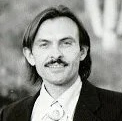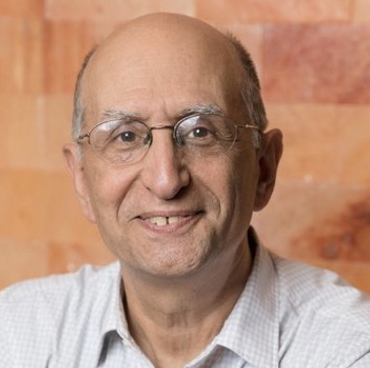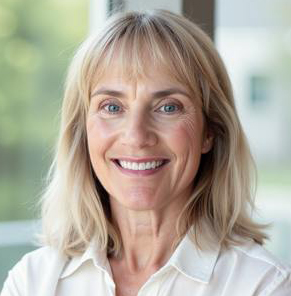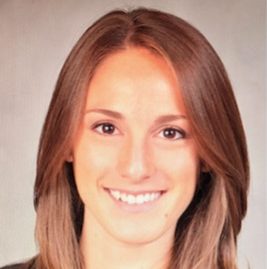Working with Dreams – Series 2
4–part interactive online cpd series
Key Info
Dreaming in
indigenous cultures
Lewis Mehl Madrona
Fri 07 NOV 2025
17.00 – 19.00 GMT
Live: Yes
Recorded: Yes
Fee £25
Mystical dimensions
of dreaming
Sheldon Lewis
Fri 14 NOV 2025
17.00 – 19.00 GMT
Live: Yes
Recorded: Yes
Fee £25
Working with
PTSD nightmares
Leslie Ellis
Fri 28 NOV 2025
17.00 – 19.00 GMT
Live: Yes
Recorded: Yes
Fee £25
Dreams across
the life span
Alicia MacDougall
Fri 09 JAN 2026
17.00 – 19.00 GMT
Live: Yes
Recorded: Yes
Fee £25
Overview
In our second live webinar series on dreams, we will continue to explore a range of perspectives and approaches for understanding and working with dreams in psychotherapy.
This series will look both at and beyond western conceptualisations of dreams, with the first two sessions offering perspectives from indigenous cultures and ancient mystical traditions. The third session will introduce recent psychological research that explores how PTSD can present through nightmares, and offer strategies and techniques for working with this therapeutically.
The final session will explore dreams across the lifespan, returning to a relational psychoanalytic approach, which is central to our clinical outlook at the Inner Citadel Institute. Each session will have an experiential dimension with space to think and discuss dream material together.
Seminar Content
PART 1 – Multidimensional dreaming in indigenous cultures
Speaker: Lewis Mehl Madrona
In this live webinar, Dr Lewis Mehl-Madrona will offer his perspective on multidimensional dreaming in indigenous cultures, and how this might inform how we hold and think about dreams in the context of psychotherapy.
Among Indigenous North American peoples, dreams are central to spiritual, cultural, and practical life, functioning as profound sources of knowledge, guidance, and healing. Dreams are not merely private, subconscious experiences; rather, they are considered authentic channels through which individuals receive insights from the spirit world, ancestors, or the broader universe. Many nations, including the Ojibwa, Dunne-za, Huron, and Sioux, hold that the dream world is as real and consequential as waking life. For example, vision quests – a key rite of passage – are often undertaken to access guidance and spiritual power through dreams or visions, requiring fasting, solitude, and ritual preparation.
The content of dreams can be prophetic, directive, or offer warnings; for instance, dreams might foretell important personal or communal events, provide solutions to problems, or bestow songs, names, or healing knowledge from animal spirits. Some groups, such as the Huron and Menomini, believe that dreams must be publicly enacted or honoured for their power to manifest, and respect for an individual’s dreams within a community grows as those dreams prove true in waking reality.
This close relationship between dreams and reality means that dreams play a vital role in shaping individual identity, social structure, and cultural continuity. Far from being passive experiences, dreams are acted upon, discussed communally, and integrated into ritual, healing, and social decision-making, reflecting a holistic worldview that recognises all realms of existence as interconnected.
PART 2 – Mystical dimensions of dreaming
Speaker: Sheldon Lewis
“Once upon a time, I, Zhuangzi, dreamt I was a butterfly.… I was conscious only of my happiness as a butterfly, unaware that I was Zhuangzi. Soon I awakened.… Now I do not know whether I was then a man dreaming I was a butterfly, or whether I am now a butterfly, dreaming I am a man.”
— Taoist story
Ancient wisdom from across generations, and around the globe, illuminates dreams beyond psychology and analytical thinking. Delving into teachings from different traditions such as Yoga Philosophy, Jewish Mysticism, and Taoism, we will explore a range of contemplative practices. These include Meditation, Self-Inquiry, Breathwork, and Imagery, which we can both perform on our own and share with clients and colleagues.
The Upanishads, foundational texts of Indian philosophy, delineate four major states of consciousness:
- The Waking State, in which we engage with—and navigate—the world around us.
- The Sleep or Dream State, which opens a gateway to the inner realm.
- The Deep-Sleep State, where we are immersed in stillness, beyond both internal and external realities—free of thought and sensory experience.
- Turiya, a state of pure awareness, or Witness Consciousness, that underlies and transcends all the other states.
We will apply teachings from mystical paths to set healing intentions before going to sleep; to reflect on, and contextualise, dreams after we wake; and to record dreams as starting points for meditation, personal insight, and prophetic visions.
PART 3 – Working with PTSD nightmares
Speaker: Leslie Ellis
While everyone has nightmares on occasion, trauma-related nightmares are in a distinct category that warrants clinical attention. Dreams about actual traumatic events are linked with both health and mental health concerns, including PTSD, elevated suicide risk, cardiovascular disease, and even lower life expectancy (due to the combination of chronic stress and poor sleep quality). If trauma dreams are frequent and distressing, treatment is advisable, yet few clinicians are aware of how to treat nightmares. Fortunately, well-researched, effective treatments exist, and these are generally quick and simple to implement. In this talk, you will learn about:
- the key features of traumatic nightmares
- current research linking these dreams to health and mental health concerns
- simple steps to implement treatment, and
- how to look for specific features in dreams that point to trauma recovery. Dr. Ellis will provide you with current best practices for treating nightmares, and offer a clinical example so you have a clear sense of how to apply these steps.
You will also be guided through a brief experiential practice to get an embodied sense of how to ‘rescript’ a dream, which is a core element in most modern nightmare treatment protocols. You will leave this talk with a clear idea of why and how traumatic nightmares should be treated.
PART 4 – Dreams across the life span
Speaker: Alicia MacDougall
Across our lifespan, our dream world is ripe with expression of unconscious content. As we move through the different stages of physical and psychological development, our understanding of this world evolves. While there may continue to be common themes such internal drives and repressed emotional states, the nuances of each theme expand.
As clinicians, we often find ourselves tasked with translating these nuances. Together with our patients, we interpret unconscious fragments of internal worlds into ego-syntonic representations of self. How we do this, however, varies incredibly as we transverse the realm of physical and psychological development.
In this webinar we will explore working with dreams across the lifespan. We will review the dreams of children, adolescent, adult, and geriatric populations. We will discuss how these dreams differ, as well as how our approach to working with these dreams differ.
We will employ a relational psychodynamic perspective for exploring dreams presented. The webinar will be conversational in nature and attendees are encouraged to bring de-identified dreams to share during the presentation.
Who is this training for?
The series is open to counsellors, psychotherapists, psychologists and psychiatrists who work therapeutically. It aims to build clinicians’ confidence and skills for working with dreams in psychotherapy, as therapists today may receive little or no teaching on them in their primary training.
Learning Objectives
- To consider the significance of dreams to depth psychotherapeutic work from a range of epistemological perspectives
- To build an understanding of how to integrate dreamwork into clinical thinking
- To develop skills and techniques for working effectively with dreams in therapeutic practice.
Speakers

Lewis Mehl Madrona
Lewis Mehl-Madrona, MD graduated from Stanford University School of Medicine and trained in family medicine, psychiatry, and clinical psychology. He completed his residencies in family medicine and in psychiatry at the University of Vermont College of Medicine. He has been on the faculties of several medical schools, most recently as associate professor of family medicine at the University of New England.
He continues to work with aboriginal communities to develop uniquely aboriginal styles of healing and health care for use in those communities. He is interested in the relation of healing through dialogue in community and psychosis.
He is the author of Coyote Medicine, Coyote Healing, and Coyote Wisdom, a trilogy of books on what Native culture has to offer the modern world. He has also written Narrative Medicine, Healing the Mind through the Power of Story: the Promise of Narrative Psychiatry, and his most recent book with Barbara Mainguy, Remapping Your Mind: the Neuroscience of Self-Transformation through Story.

Sheldon Lewis
Sheldon is a longtime Mind-Body Practitioner, Integrative Health Coach, and Meditation Teacher, in private practice in New York City and at The Center for Functional Medicine (Ridgefield, CT).
Skillfully weaving teachings and practices from ancient wisdom with contemporary science, his aim is to inspire others to initiate and deepen their spiritual practice, cultivating resilience, equanimity, and wholeness.
Sheldon has led hundreds of Meditation classes as well as workshops, such as Change Your Brain with Meditation and Wisdom of the Heart. He also trains healthcare professionals in Mind-Body-Spirit practices and Contemplative Meditation and has presented at professional conferences, such as the Integrative Healthcare Symposium.
A pioneering journalist in Integrative Health, Sheldon was Editor of the peer-reviewed journal Advances in Mind-Body Medicine, a Contributing Editor for Spirituality & Health magazine, and co-author of the books The Human Side of Cancer, Stress-Proofing Your Child, and Integrative Medicine in America.
Sheldon has an MA in Performance Studies from New York University. His teaching style reflects his background in improvisation and storytelling.

Leslie Ellis
Dr. Leslie Ellis is a leading expert in the use of experiential and somatic approaches for working with dreams, nightmares and the effects of trauma. She is the author of A Clinician’s Guide to Dream Therapy (Routledge, 2025) and offers online training in embodied, experiential dreamwork and nightmare treatment.
She has a PhD in Clinical Psychology with a somatic specialisation, and a Masters in counselling psychology with a focus on depth/Jungian approaches. She was a psychotherapist in private practice in Vancouver, BC for more than 25 years. She is a former adjunct faculty at Adler University, and past president of The International Focusing Institute, where she is currently a Certifying Coordinator.
Dr. Ellis has published numerous book chapters and journal articles on the use of focusing and dreamwork in psychotherapy – most recently articles on nightmares and the nervous system, and the alarming nightmare-suicide link. An update of her clinical dream book was published in June 2025, and she is currently working on a book about hybrid dream-wake states and disturbed dreaming.

Alicia MacDougall
Alicia MacDougall, PsyD, ABPP, is a clinical psychologist, Board Certified in Psychoanalytic and Psychodynamic Psychology. She received her doctorate from Antioch University New England and completed a post-doctoral fellowship at Cambridge Health Alliance/Harvard Medical School, working on child and adolescent psychiatric inpatient units.
She holds multiple leadership positions, including Academy Coordinator, American Board and Academy of Psychoanalytic and Psychodynamic Psychology; Early Career Representative, Psychoanalytic and Psychodynamic Psychology and Psychoanalysis Specialty Council; and Co-Chair of the APA Society for Psychoanalysis and Psychoanalytic Psychology (Division 39) Early Career Committee.
Currently, she is in private practice in Keene, New Hampshire, working with children, adolescents, and adults presenting with severe and persistent mental illness, mood and personality disorders, and complications from emergency medical events, pervasive medical diagnoses, somatic symptomatology, and various forms of psychological and physical abuse. She also provides support to parents with children with current or past NICU experiences and provides psychotherapeutic services for perinatal and postpartum concerns.
Alicia provides consultation and assessment services to schools from a relational psychoanalytic perspective. She is Affiliate Faculty, Department of Clinical Psychology, Antioch University New England, where she is an instructor and clinical supervisor. Book author of The Relational Interpretation of Dreams: When it’s About More Than Your Mother, Dr. MacDougall is a firm believer in the synergistic quality of dreams and relationships and utilises dreams as tools for enhancing the intersubjective spaces of the many worlds in which her work encompasses.
